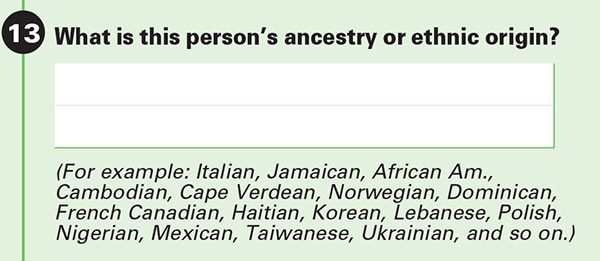The federal office in charge of creating and overseeing the government’s population data collection practices is now providing guidance to agencies on how to collect data on the Middle Eastern and North African (MENA) community using a separate ancestry question.
Those working for proper recognition of the MENA community as its own distinct population welcome the new guidance by the Office of Management and Budget (OMB). OMB standards determine how government agencies distribute material resources, political representation and research funding.
Many MENA people have historically been miscategorized as “White”, despite their national and ethnic affiliations, leading to a lack of representation on large-scale census counts. But because of this miscategorization, they have also missed out on federal programs target towards minorities.
Community activists and researchers say properly categorizing MENA as a distinct community will recognize the uniqueness of the community and improve access to necessary resources.
The OMB recently issued new best practices, “Flexibilities and Best Practices for Implementing the Office of Management and Budget’s Statistical Policy Directive Number 15,”, which outline how all federal agencies can collect more detailed demographic data
Earlier this year, the U.S. Treasury Department added a MENA ancestry question as part of the reporting requirements for partners under their State Small Business Credit Initiative (SSBCI).
Collecting MENA data along with respondents’ self-certification as a “socially economically disadvantaged individual” (SEDI) makes it more likely that MENA communities can access federal assistance earmarked for under-resourced communities, according to Arab Community Center for Economic and Social Services (ACCESS), the nation’s largest Arab American nonprofit.
The OMB standards are generally followed by the U.S. Census Bureau, though the question of whether specific racial, ethnic or national categories suited for MENA will appear on the next 10-year Census remains unclear, for now.
Adam Beddawi, federal policy manager at ACCESS and the National Network for Arab American Communities (NNAAC), told The Arab American News this week that the OMB’s action identifies a specific mechanism all agencies can use to collect data on individuals from the MENA region.
Right now, MENA data is not collected because all agencies adhere to a set of minimum standards the OMB set in 1997. The OMB committed to revising these standards this past June.
Though the OMB is not expected to finalize these revisions until the summer of 2024, with the new guidance, it has indicated that it wants to be helpful to the MENA community while it carries out a longer process for revising the standards all agencies must adhere to.
“Now, the work is on us to identify programs where data on MENA individuals would benefit MENA communities, and to advocate for MENA inclusion,” Beddawi said.






Leave a Reply